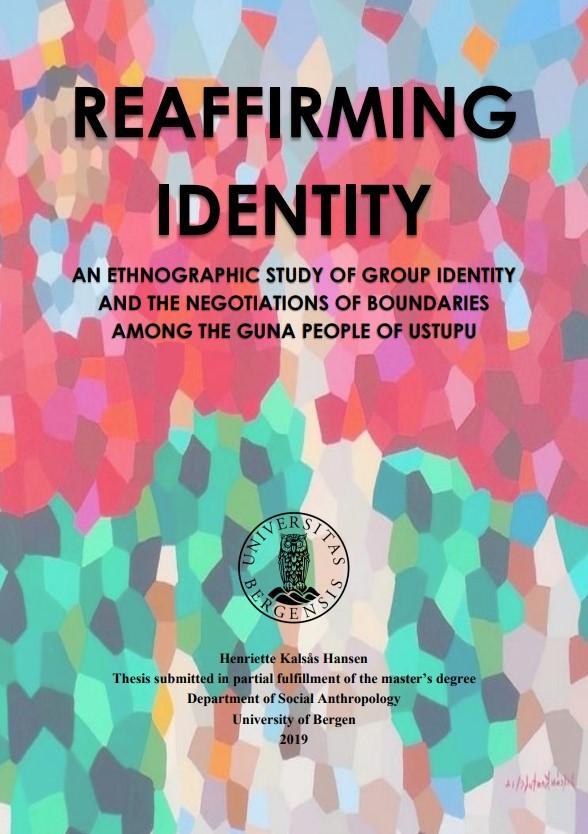Reaffirming Identity: An Ethnographic Study of Group Identity and the Negotiations of Boundaries among the Guna People of Ustupu
Hovedinnhold
Master's thesis submitted at Department of Social Anthropology, autumn 2019
By: Henriette Kalsås Hansen
Supervisor: Associate Professor Iselin Å. Strønen
The Guna people of Panama have a strict definition of group membership which essentialize ethnic origin and enhance the importance of cultural and territorial belonging. This master’s thesis—based on a six-month long fieldwork conducted at the island of Ustupu—seeks to explore the questions of why this strict definition has become so important to preserve, and moreover, how it is constantly being reaffirmed through the production and reproduction of group boundaries.
A past of discrimination and exploitation have made it necessary for the Guna to maintain a strong group identity in order to upkeep control over their ancestral land. They have managed to sustain their territorial autonomy by adapting their political organization to meet state assimilation politics. As interactions with outsiders have increased, so have the village organization and social control; focusing intensively on social and moral order and egalitarian values which are based in cosmological beliefs. Today, the people of Ustupu maintain this social order through the embodied practice of everyday routine activities which are locally perceived to be distinctive “ethnic markers”.
The past become especially important in creating a continuum between the ancestral land and the present-day living Guna. Myths and history are interpreted in order to reproduce ideas of origin and the ideal of a “Guna way of life” and become central to the boundary making maintenance by enhancing the narrative of frictional encounters between the Guna and “the Other". The boundary is further maintained by continuous processes of categorization; through small-scale meetings with outsiders, the usage of terminology to create distinction, and through local classifications of “phenotype”. However, the boundary is fluid, and “the Other” is not a bound category; it shifts and changes with interactions and perceptions of threat. At Ustupu, inter-ethnic sexual relationships between Guna women and Colombian tradesmen are currently being perceived to be the most active threat to their definition of group membership, further, the children born from these relationships become symbols of processes of change which is feared to result in cultural loss.
Throughout the thesis I will demonstrate that the Guna people’s strict definition of group membership is connected to the ongoing historical context of asymmetrical interactions with “the Other”. Further, that the conception of the defined ethnic self-identity is constantly being reaffirmed through political, social and cultural practice; continuously being negotiated through local interactions with “otherness”.
